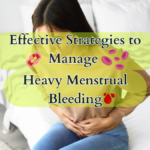Nutrient Absorption : 10 Science-Backed Tips
Imagine this: You’re eating a rainbow of veggies, sipping green smoothies, and choosing whole foods—yet you still feel sluggish. Sound familiar? The truth is, what you eat is only half the story. The real magic happens in how well your body absorbs those nutrients.
Nutrient absorption is like a backstage crew for your health—it quietly determines whether the vitamins, minerals, and antioxidants in your food actually make it into your bloodstream. Let’s explore how to turn your meals into nutrient powerhouses with simple, actionable strategies.

Why Nutrient Absorption Matters
Your body isn’t a vacuum cleaner—it can’t suck up every nutrient you eat. Digestion breaks food into smaller components, but absorption depends on factors like gut health, food combinations, and even how you chew. Poor absorption can lead to deficiencies, low energy, and a weakened immune system, even if your diet looks perfect on paper.
10 Tips to Boost Nutrient Bioavailability
1. Chew Like You Mean It
Digestion starts in your mouth. Chewing thoroughly breaks down food, making it easier for stomach acids and enzymes to work. Saliva also contains digestive enzymes (like amylase) that kickstart carbohydrate breakdown. Aim for 20–30 chews per bite—your gut will thank you.
2. Pair Nutrients Strategically
Some nutrients are better together:
- Iron + Vitamin C: Spinach (iron) with lemon juice (vitamin C) boosts iron absorption by up to 300% (1).
- Fat + Fat-Soluble Vitamins: Drizzle olive oil on kalee to aabsorb vitamins A, D, E, and K.
- Turmeric + Black Pepper: Piperine in black pepper enhances curcumin absorption by 2,000% (2).
3. Heal Your Gut
Your gut lining is the gatekeeper for nutrients. To support it:
- Eat probiotic-rich foods like yogurt, kefir, and sauerkraut.
- Add prebiotic fibers (garlic, onions, bananas) to feed good bacteria.
- Consider collagen or bone broth to repair the gut lining.
Video Credits
4. Outsmart Anti-Nutrients
Phytates (in grains and legumes) and oxalates (in spinach) can bind to minerals like iron and calcium. Reduce them by:
- Soaking oats or beans overnight.
- Cooking or fermenting foods.
5. Stay Hydrated—But Time It Right
Water is essential for digestion, but drinking large amounts during meals may dilute stomach acid. Sip moderately and focus on hydrating between meals.
6. Cook (or Don’t Cook) Smart
- Cook tomatoes to increase lycopene absorption.
- Eat raw carrots for more vitamin C.
- Steam or sauté greens instead of boiling to preserve nutrients.
7. Limit Antacids and Antibiotics
Overusing antacids reduces stomach acid, crucial for breaking down protein and absorbing B12. Antibiotics can disrupt gut bacteria—opt for them only when necessary.
8. Move Your Body
Exercise stimulates blood flow to the digestive tract, enhancing nutrient uptake. Even a 15-minute walk after meals can aid digestion.
9. Manage Stress
Chronic stress diverts blood away from your gut, slowing digestion. Try mindfulness, deep breathing, or a 10-minute meditation before meals.
10. Don’t Overdo Fiber
While fiber is vital, excessive amounts (especially from supplements) can bind to minerals. Aim for 25–30g daily from whole foods.
When to Seek Help
If you experience chronic bloating, fatigue, or irregular bowel movements, consult a healthcare provider. Conditions like celiac disease or IBS can severely impact absorption.
Conclusion
Improving nutrient absorption isn’t about drastic changes—it’s about working smarter, not harder. Pair foods mindfully, support your gut, and tune into how your body responds. Remember, even small tweaks can unlock big gains in energy and vitality.
Ready to level up? Share your favorite absorption-boosting tip in the comments, or subscribe for more science-backed nutrition guides!
Sources:











